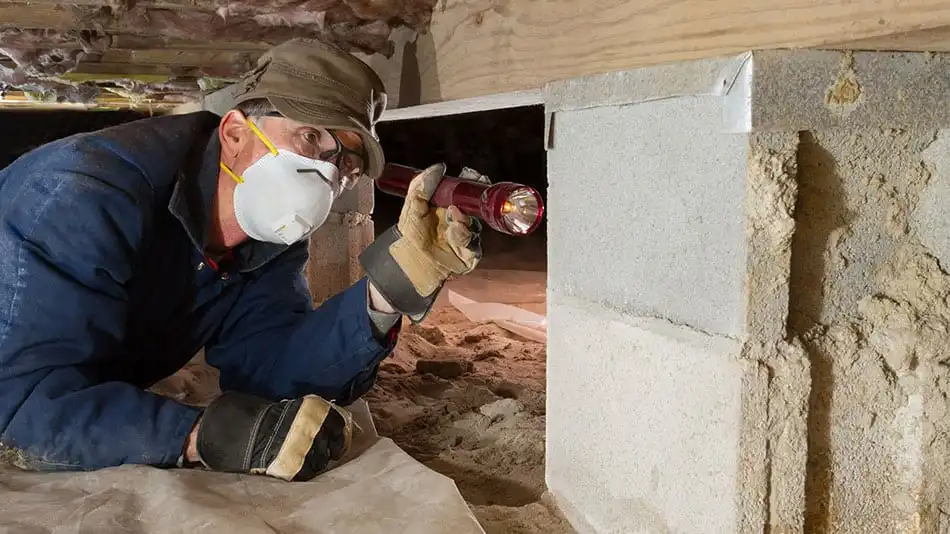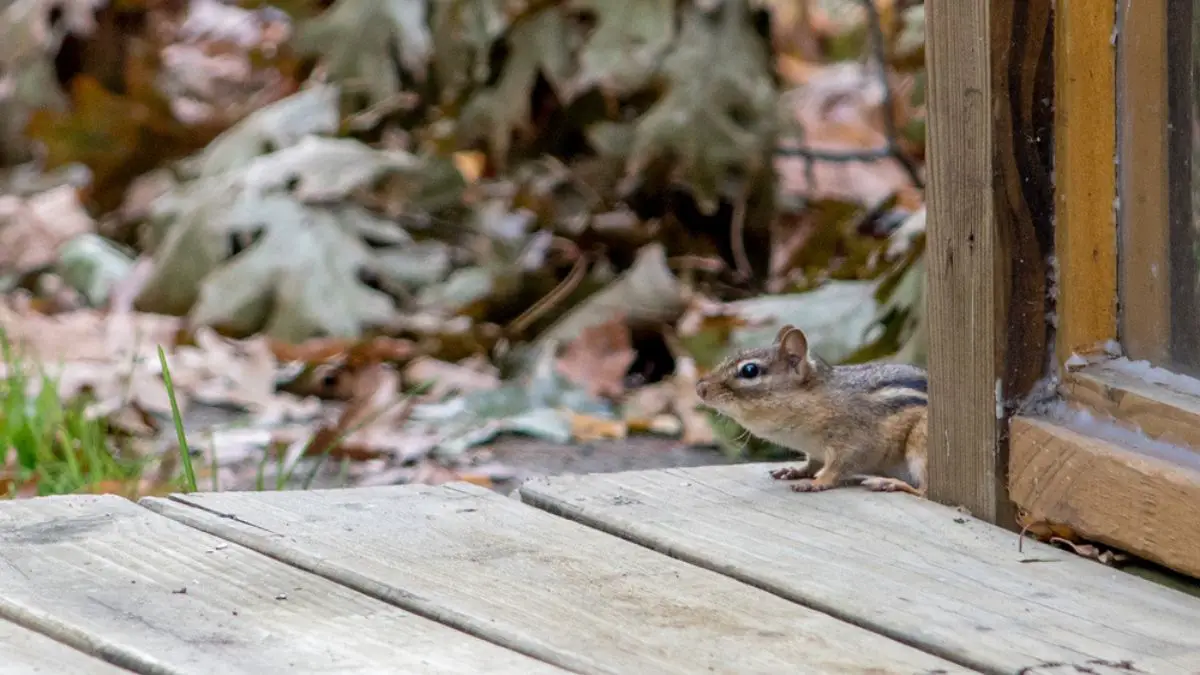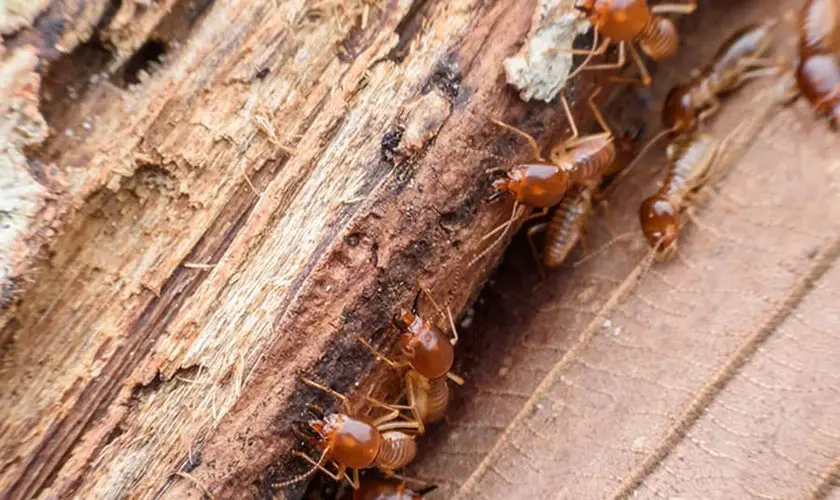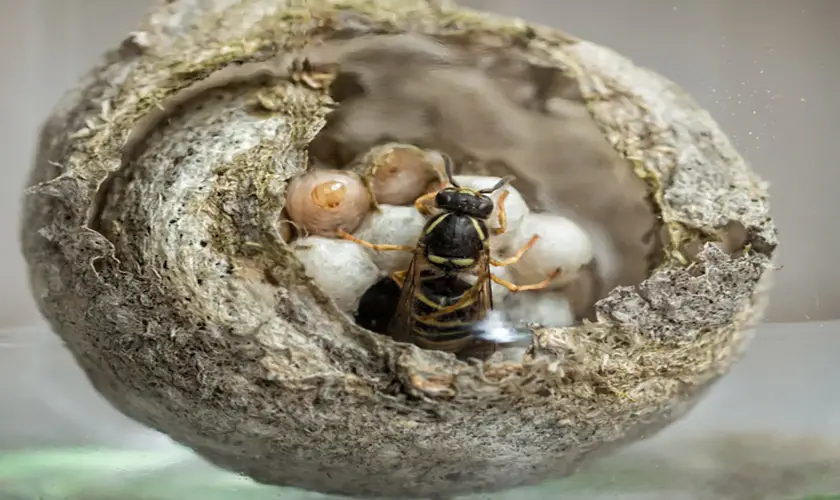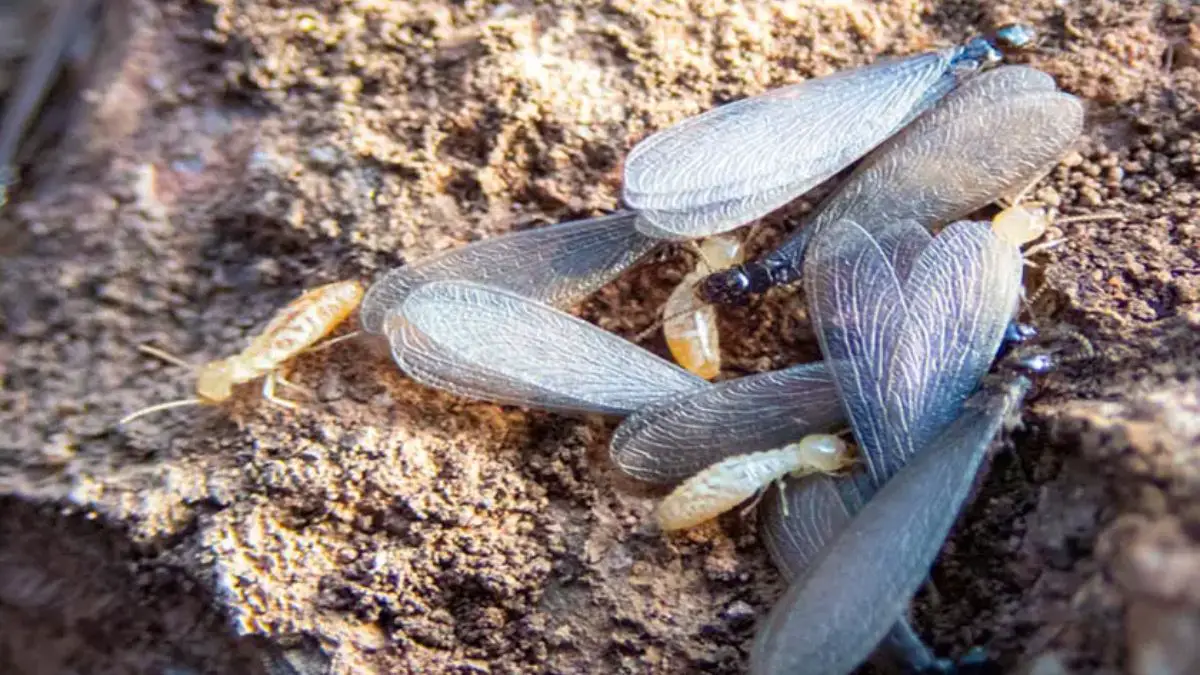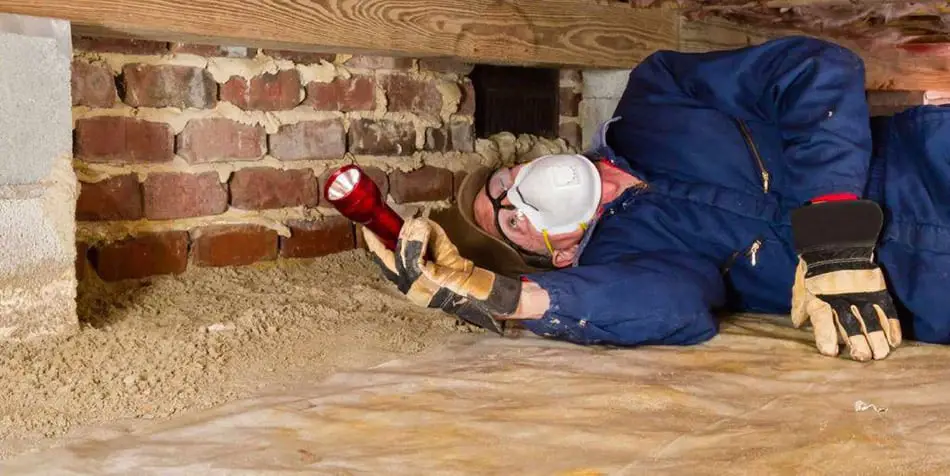
The mere thought of having an unwanted visitor in the night disturbing your restful slumber is enough to make anyone’s skin crawl. Our beds are supposed to be a haven, away from the world’s daily worries.
Yes, a mouse might crawl over you while sleeping if you are between the mouse and its destination and the mouse cannot find an alternative route. Mice generally avoid confrontation, so it is unlikely they will disturb you while you sleep.
This post might not be for the faint-hearted. If you have musophobia or fear of mice, this might be the best post for you or your worst nightmare. Do not fear. We are here for you and will support you at every step.
Get FREE quotes from licensed pest control technicians in your area today. Whether you need spraying for ants, roaches, spiders, ticks, mosquitos, or bed bugs, We Can Help! All technicians are screened, licensed, and insured.
Will A Mouse Crawl On Me While I Sleep?
Unfortunately, the sad truth is that the answer to this question is yes. Mice will crawl over you while you sleep. They do not appreciate your personal space and will take any opportunity they get to scavenge for food, no matter where they might find it.
Luckily, mice do not tend to stay in one place for very long due to their natural fear of being discovered by wandering predators. If they are trying to reach a specific spot, and your bed happens to be the quickest route there, they will run across and be on their way.
How High Can Mice Jump?
Now that we have established that mice can indeed crawl on you while you are sleeping, we need to know how high they can jump. Maybe we can perch our beds on a high enough structure to keep them on the ground instead of having them crawl onto our beds.
So how high can mice jump? The answer is quite surprising. House mice weigh about 0.5 ounces and are about 5.5 to 7.6 inches long. These little critters are agile athletes capable of jumping up to 13 inches vertically.
If you have an average height bed, including the base, your bed will be between 16 and 24 inches high. This is excellent news! The fact that mice cannot jump that high means a mouse cannot jump onto your bed as effortlessly as a dog or a cat could. You don’t need to prop your bed on a pair of stilts to keep mice from disturbing you while you sleep.
Are Mice Good Climbers?
Climbing onto your bed is a whole other story, unfortunately. A mouse’s climbing ability is comparable to that of a professional mountain climber. Mice can scale near-vertical surfaces such as a wall by pressing their bodies between a pipe or other hard surfaces.
Most bed bases are not made from pipes but rather soft linen-like material. Mice have incredibly sharp claws and relatively strong muscles for their size. If you ever visited the park as a child, think of your bed base as the climbing ropes on the side of the jungle gym.
A mouse can use your bed base to access anything it might find at the top of your bed, including you and any leftover crumbs that might have dropped onto your linen.
Will A Mouse Bite Me While I Sleep?
If you have mice in your bedroom, your chances of them biting you are relatively low. It’s not unheard of, but mice will rather have you sleep soundly and give themselves free rein over any scraps they might find than risk having you wake up and discover their presence.
Unlike their more gentle counterparts, rats do tend to bite humans. If you have rats in your safe space, you will need to take action and rather quickly rid your bedroom of their presence before they get a chance to bite or scratch you. Like mice, rats carry many notoriously harmful diseases to humans and should not be taken lightly.
Signs That There Is A Mouse In My Bedroom
If your evenings have been undisturbed, but you suspect that there might be something squeaking in the night, there are a few signs you can look out for to determine whether or not mice are visiting your bedroom while you slumber.
1. Mouse Droppings
A clear indication that a mouse has recently been in your room is the presence of mouse droppings. Mice don’t understand how bathrooms work and will ‘go’ wherever they please. Fresh mouse droppings have a dark color and are moist. Older droppings turn gray and will quickly turn to dust if touched.
Look for mouse droppings near food parcels, around your bedside table, near your drawers, close to their preferred route, or any other ‘hidden’ areas in your bedroom. You might have found the mouse’s nest if you find many droppings.
Whatever you do, do not touch mouse droppings with your bare hands. Mouse droppings are one of the primary ways diseases spread from mice to humans.
2. Signs Of Gnaw Marks
Gnaw marks are another clear indication that there might be a mouse infestation. Fresh gnaw patterns can be found on containers that have food in them or even furniture. Mice gnaw on objects to keep their teeth short. They can’t help themselves. Older gnaw marks are darker in color compared to fresh marks.
Using your judgment, you can determine whether any marks you find are mice or rats made by looking at the size of the pattern itself. If the spot seems more extensive than you could reasonably suspect a mouse of making, the chances are that it’s not a mouse; it’s a rat.
3. Sour Smell
This smell might be undetectable to the human nose, but it will stand out like a sore thumb to a house pet. You should investigate further if your dog or cat is particularly interested in a specific area. Dogs and cats often scratch small openings under furniture like bookshelves or dressers when they detect something hiding. Mice are very good at ‘hide and seek.’
4. Mice Routes
Mice are creatures of habit. If they find a route they like that is safe and free from other pedestrians, they will continue to use it frequently. If you think that you have found the mouse’s highway, use a black light or some flour to confirm your suspicions. A black like will make things like mouse droppings and urine stains light up like a Christmas tree, and the mouse will leave apparent footprints in the flour the next time they pass through the area.
5. Mouse Nest
Finding a mouse nest is probably the most obvious sign that you have mice living in your bedroom. A mouse’s nest is usually built out of bits and pieces the mouse finds around your house, think of materials like scraps of paper, some leftover fabric from that dress you made a while ago, or some dead leaves that fell off the plant in the corner you promised your stepmother you’ll take care of this time.
If you find a nest, check the area around it to ensure the mouse still lives in it. Look for fresh gnaw marks, mouse droppings, or some tracks. If you can’t find any, chances are, the mouse decided to move on to greener pastures.
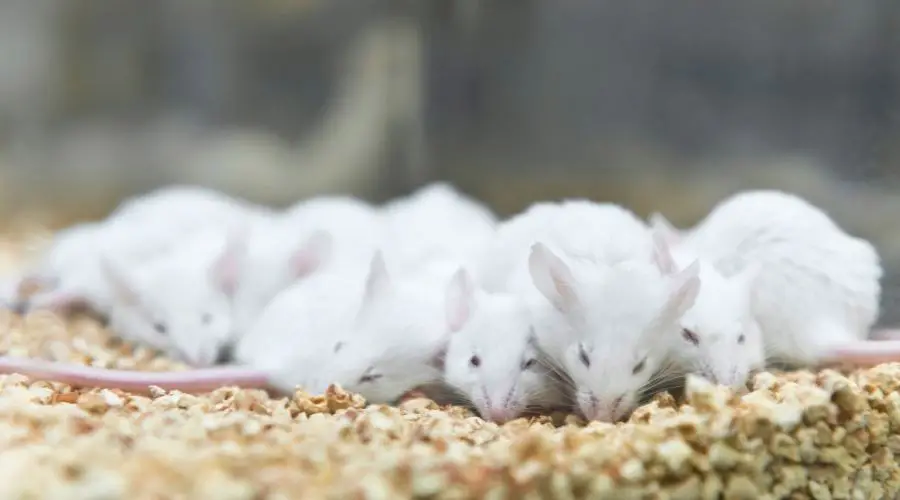
Dangers Of Having Mice In My Bedroom
You might think that sharing a bedroom with a tiny, innocent-looking mouse couldn’t be all that hazardous to my health, could it?
The problem is that mice, like rats, carry a host of diseases that are incredibly harmful to humans, and you should do everything you can to rid your bedroom of them before they get a chance to pass these diseases onto you or your loved ones.
Some of the diseases that mice carry include:
- Bubonic Plague. The Bubonic Plague is the worst-sounding disease on this list. Lucky for us this disease is not all that common. According to the Center for Disease Control, only 1-17 cases are contracted annually.
- Lymphocytic Choriomeningitis (LCM). House mice carry this infectious virus. If you contract this virus, you could start showing symptoms in as little as 8 to 13 days. Lymphocytic Choriomeningitis has two stages. You will experience fever, a lack of appetite, muscle aches, headaches, nausea, and vomiting in the first stage. In the second stage, after a few days of recovery, you will experience drowsiness, confusion, and motor function abnormalities that require medical intervention in more severe cases.
- Salmonellosis. If you contract this disease from the bacteria found in mouse urine, you could experience diarrhea, fever, abdominal cramps, and vomiting. Symptoms for this disease typically show up between 12 to 36 hours after exposure to it and last between two to seven days.
- Leptospirosis. Leptospirosis is a blood infection caused by bacteria. The bacteria that carry this specific disease can be found in the mouse’s urine. You will need to be especially vigilant when cleaning any urine stains you see, ensuring you wear protective gloves and a face covering when doing so, and thoroughly wash your hands afterward. This disease’s symptoms include high fever, chills, red eyes, rashes, diarrhea, muscle aches, and vomiting, to name a few.
- Hantavirus. This respiratory disease could be lethal in some cases. According to the CDC, the “incubation period” is not well documented, but symptoms could start developing between 1 and 8 weeks. Early signs of this disease include fatigue, fever, and muscle aches. After about 4 to 10 days, new symptoms immerge that include coughing, shortness of breath, and “a sense of suffocation,” as one survivor described it, as your lungs start filling with fluid. There is no known cure or immunization for this disease at this time. Hantavirus has a mortality rate of 38%.
These diseases and viruses are hazardous and should not be overlooked because the hosts carrying them are small and unassuming.
What Would Attract A Mouse To My Bedroom?
Now that we have addressed the dangers of having a mouse in your bedroom and confirmed that they could indeed get onto your bed while you sleep, let us now turn our mind to how we can prevent them from getting into your bedroom in the first place.
There are a few reasons why mice are attracted to our bedrooms.
- A messy bedroom. Mice are scavengers. They will seek out any form of food they can find. Leaving small things like food scraps or crumbs in your bedroom is a clear invitation to all those of the mouse persuasion. They will happily consume anything you leave out for them.
- A source of water. Like all living things on earth, mice need water to survive. They will make a nest nearby if they can find access to freshwater through something like a leaky pipe or your pet’s water bowl.
- Warmth. Mice are attracted to warm spaces, much like us. If your bedroom is warmer than the outside, they will naturally gravitate to it. They will use any opening to build a shelter in a generous, safe space.
Will Getting A Cat Keep Mice Out Of My Bedroom?
If you have noticed a mouse infestation, you might consider getting a feline companion to comfort and protect you at night while you sleep.
Cats actively hunt small rodents and are an excellent mouse deterrent. If your cat sees a mouse, it will take the opportunity to show off its instincts and hunt the mouse down.
A cat in the house will also deter mice through their urine scent. Mice naturally try to avoid predators, and a cat’s scent indicates that the area your cat has marked as its territory is off-limits.
Other Methods Of Exterminating Mice
We are all animal lovers, but if push comes to shove and we need to choose between a mouse’s life and that of our loved ones, we will more than likely choose our loved ones.
If your consciousness allows, consider placing mouse traps or rat poison in areas you suspect a mouse of frequenting. Do not put poison down if you have any pets. If the mouse eats the poison you left for it and dies, and your pet encounters its body and mistakes it for food, your pet will become very ill.
Mice Misconceptions
There are a few common misinterpretations of facts regarding these small uninvited guests. Let’s see if we can address a few of them.
1. The Best Mouse Bait Is Cheese
Most people have been taught through media that mice are addicted to cheese. This theory has some merit, but mice will eat many things, not just cheese and peanut butter. If you want to lure a mouse out from its nest, consider using food the mouse has previously found.
Use that if you notice that the mouse has taken a particular liking to a specific item in your cupboard. If you see that the mouse is actively looking for nesting materials, put some cloth or scraps of paper near your trap to lure them out.
2. Mice Don’t Have Bones, That’s How They Get Into Small Spaces
Many people think mice have either a flexible skeleton or no bones because they quickly gain access to their homes through small crevasses. Mice can squeeze through tiny gaps because they only need enough space to get their heads through. A mouse’s head is only about one-quarter of an inch wide. Mice don’t possess a collarbone also helps them get through tight areas.
3. Mice Don’t Like Sunlight And Only Eat At Night
This is another misconception: mice are nocturnal creatures, but they will take any opportunity to stuff their bellies because they don’t know when or where they might find their next meal. Mice typically eat 20 times a day.
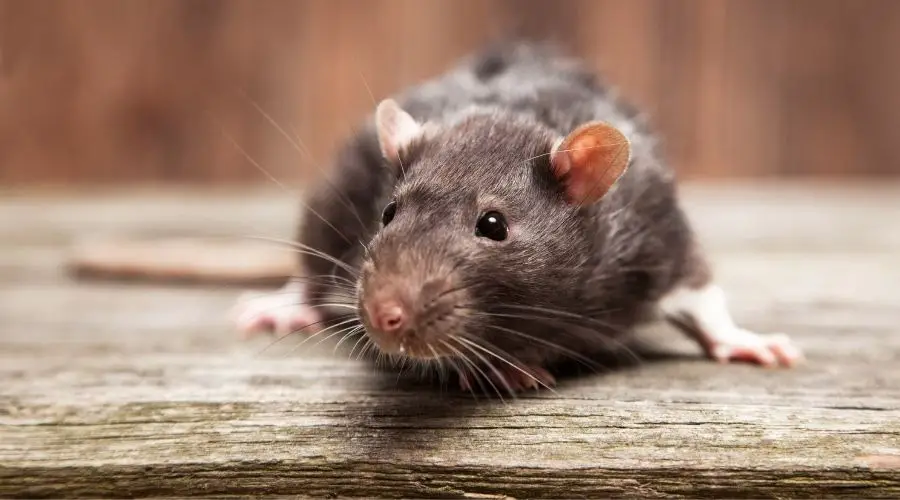
How To Deal With Musophobia
Having a phobia of mice is nothing to be ashamed of. Many people are living with this fear. They can manage it successfully through various means. If you have musophobia, try the following and see if it helps calm your nerves.
- If your musophobia is impairing your ability to function daily, consider seeking professional therapy from a licensed physician. In less severe cases, the therapist might prescribe anti-anxiety medication.
- Educate yourself on how to prevent mice from taking hold in your home. Learn about the dangers that mice pose and protect yourself from catching any disease they might carry.
- Keep your living area clean and free from the clutter that might attract mice. Ensure you manage your building’s maintenance regularly to ensure no openings that mice might slip through.
- Use professional pest control services to rid your home of pesky mice that might have made a nest somewhere.
Conclusion
Mice are incredibly agile little critters and should be taken seriously. If you find that your bedroom has invited an unwanted guest, you need to take reasonable, actionable steps to persuade the mouse to make his home elsewhere. After all, this is your bedroom, and you are the boss.
Get FREE quotes from licensed pest control technicians in your area today. Whether you need spraying for ants, roaches, spiders, ticks, mosquitos, or bed bugs, We Can Help! All technicians are screened, licensed, and insured.


